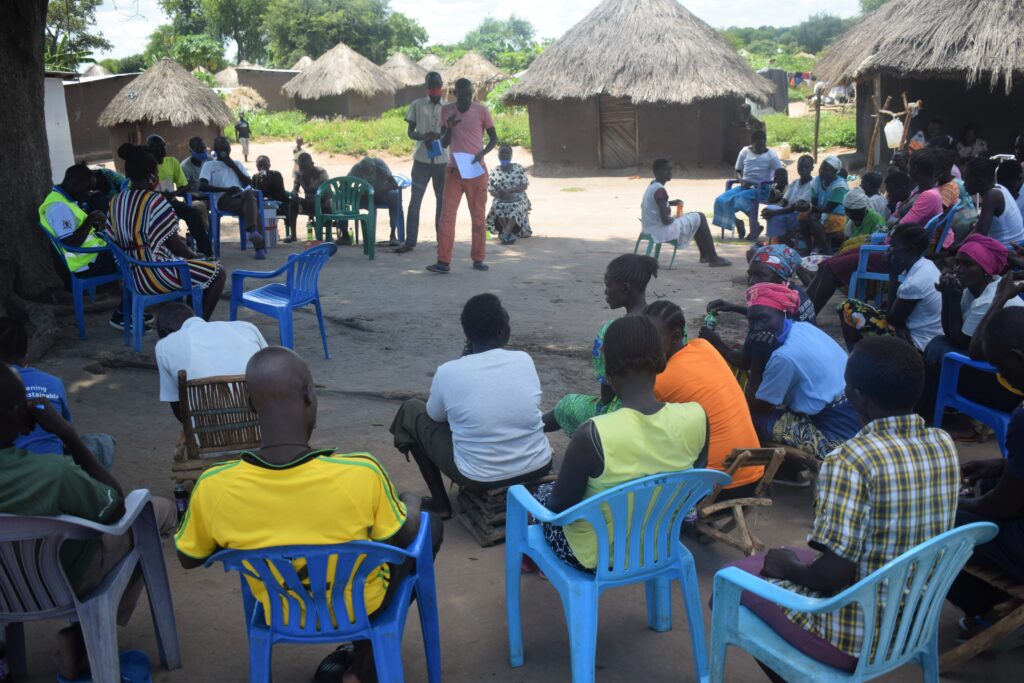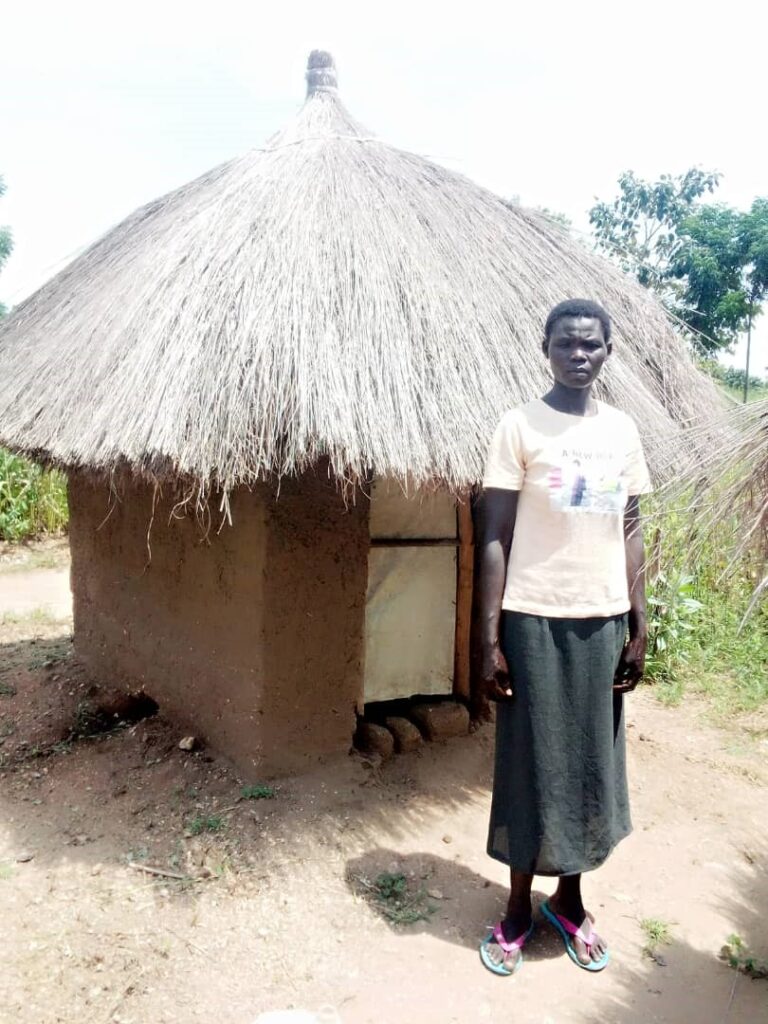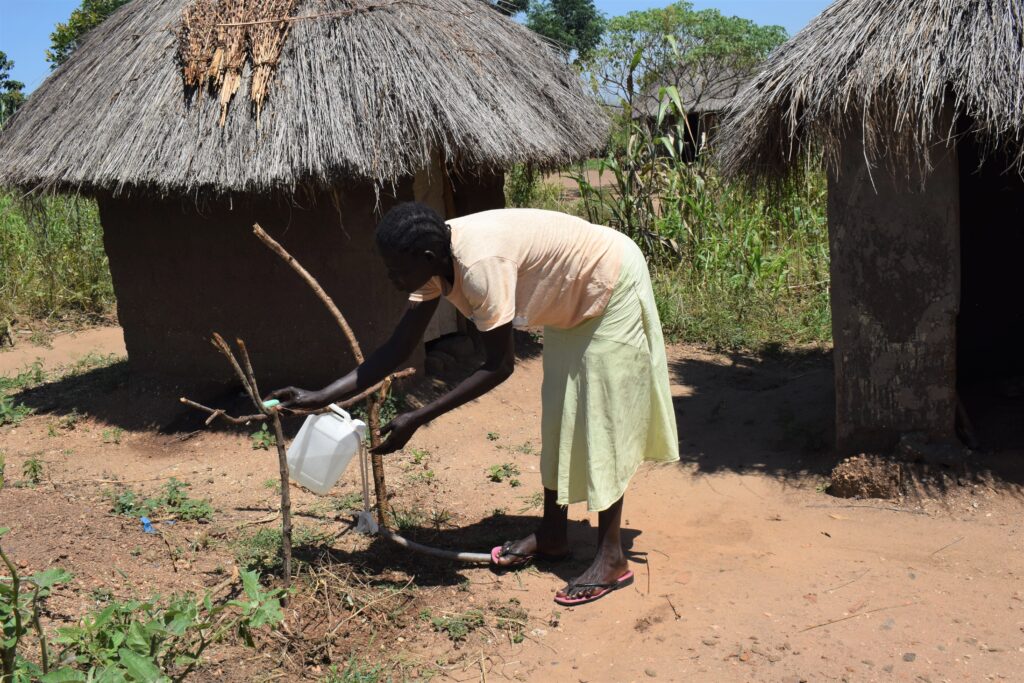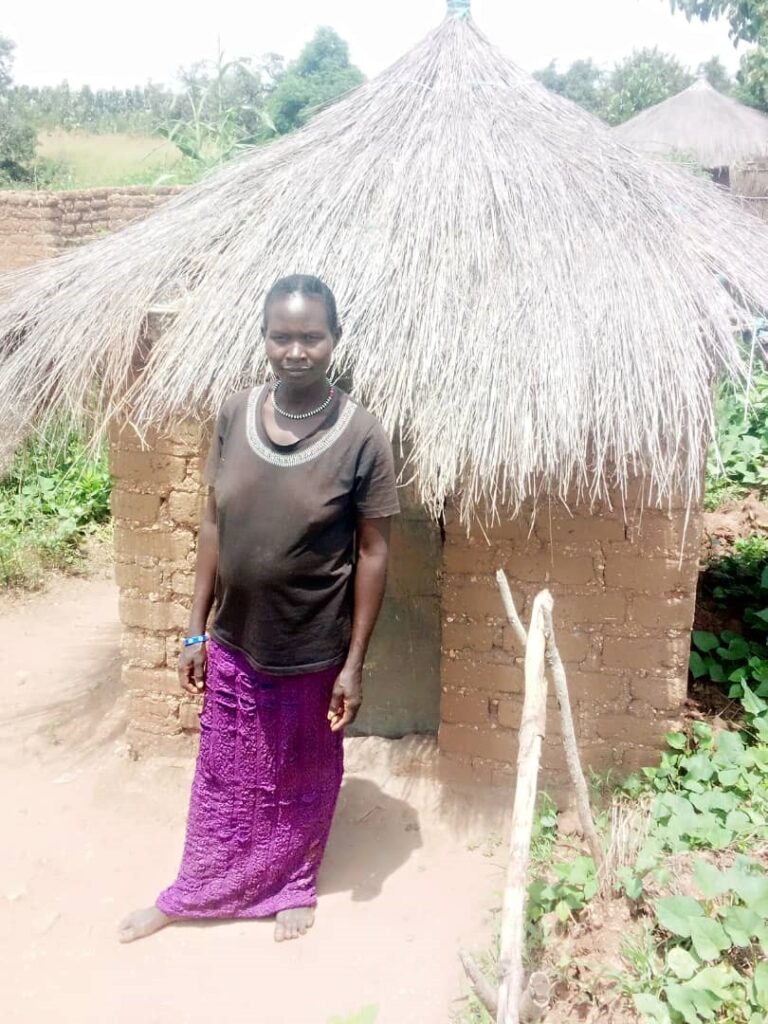Author: Debi Nabukeera
Photo Credits: Rogers Musiitwa
Community Initiative to Construct Latrines in the Bidibidi Refugee Settlement
Uganda hosts many refugees from neighboring countries, especially from South Sudan. The Bidibidi refugee settlement (in the Yumbe district) is one of the biggest refugee camps in the North of Uganda. In the settlement, many refugee families do not have access to proper water and sanitation services: A third of the population in the Bidibidi settlement does not have access to a toilet (UNHCR, June 2021). Having no access to sanitation facilities leads to cycles of disease and poor health outcomes among the families and communities.
To change this and to improve access to sanitation services, the Agency for Cooperation Research and Development (ACORD) Uganda with support from HEKS/EPER and the Swiss Water and Sanitation Consortium (SWSC) work with the families in the Bidibidi settlement. With the help of the Participatory Hygiene and Sanitation Transformation approach (PHAST, see more information below), families are sensitized about hygiene and health. The hygiene promoters of ACORD Uganda work with the communities in weekly sessions to promote improved WASH practices. An important part of their work is also to encourage families to construct pit latrines for their own use.

Below are two success stories of families who build their own latrines at home:
Elida Ajonye, a 30-year-old South Sudanese refugee, who lives in the Bidibidi refugee settlement, also attended a PHAST awareness session in her village, carried out by ACORD Uganda. Elida became aware of the benefits of having her own latrine and was determined to construct one in her home. Her determination was also anchored on her prior experience of sharing a latrine with her neighbors, which came with a lot of restrictions.

Elida recalls digging the latrine pit herself using the digging tools given to the community by ACORD Uganda. This is hard work, due to the rocky nature of the soil in the village. Elida also collected other materials, including logs and grass from the bush. She hired a mason from the community to support her with the construction work and the roofing of the latrine. She also installed a hand-washing facility, using a recycled five-liter jerry can.

Having a latrine in my home has come with tremendous benefits including reduced cases of open defecation in and around my home and reduced diarrheal cases. Now I have more respect in the community and – best of all – I am living in harmony with the neighbors, which was not the case before. I feel confident to have visitors in my home because there is no need to worry about where they will go in case they need to use a latrine.
Elida Ajonye
Anite Scovia is a 35-year-old single mother, a South Sudanese refugee, and lives in the Bidibidi refugee settlement in Uganda. Also Anite’s family now owns a latrine, thanks to ACORD Uganda and their sensitization campaigns on sanitation and hygiene in the communities.

Anite explains that before having an own latrine, the family had to ask neighbors to use their latrines. This was inconvenient and caused stress as some neigbours did not allow the family to use the latrines, other neighbors would ask Anite to first sweep their latrine before using it. At times, the neighbors would also lock their latrine. And, especially at night, it was difficult for Anite’s family to find a latrine to use. Anite recounts that her family was not respected in the community and that family members constantly suffered from diseases related to poor sanitation.
After attending a hygiene and sanitation awareness session in our village, I became motivated to build a latrine in my home to improve the health of my household. I bought nails, collected logs and grass from the bush and paid UGX 20,000 (approx. $5.50) to the mason for the construction work. I’m very happy that I no longer have to go through the experience of asking permission to use the latrine from my neighbors. I can use my own latrine at any time and live peacefully with my neighbors. I am also not so worried about diarrhea anymore which has disturbed my family for so long.
Anite Scovia
The Project in the Bidibidi Refugee Settlement
The Agency for Cooperation Research and Development (ACORD) Uganda with support from HEKS/EPER and the Swiss Water and Sanitation Consortium (SWSC) implements the project “Improving Sustainable Services and Schools in Bidibidi Settlement”. The overall objective of the project is to improve sustainable access to safe water, sanitation and hygiene services for 12,542 South Sudanese refugees and 1,680 host community members in Bidibidi. The project builds on past phases, which promoted Community Led Total Sanitation (CLTS), improved Water Supply and WASH infrastructure development.
In the current project phase, ACORD uses the PHAST approach (“Participatory Hygiene and Sanitation Transformation”, WHO) at household level. The aim of the approach is to further a community’s understanding of how improved WASH services prevent diarrhea and other gastrointestinal diseases. With specific participatory activities, community groups discover for themselves the faecal-oral contamination routes of disease, analyse their own hygiene behaviours and plan how to block the contamination routes.
The hygiene promoters of ACORD Uganda work with the communities in weekly sensitization sessions to promote improved WASH practices. The hygiene promotion sessions include the following topics:
- Safe excreta disposal (identification of pit latrines)
- Improved hand washing practice (tippy tap installations at households)
- Safe water chains at household level and at water points
- Community health, hygiene and sanitation awareness meetings (advocacy meetings and focus group discussions)
- COVID-19 prevention messages
- Jerry can clean up campaign
- Monitoring functionality of water points (tap stands and hand pumps)

